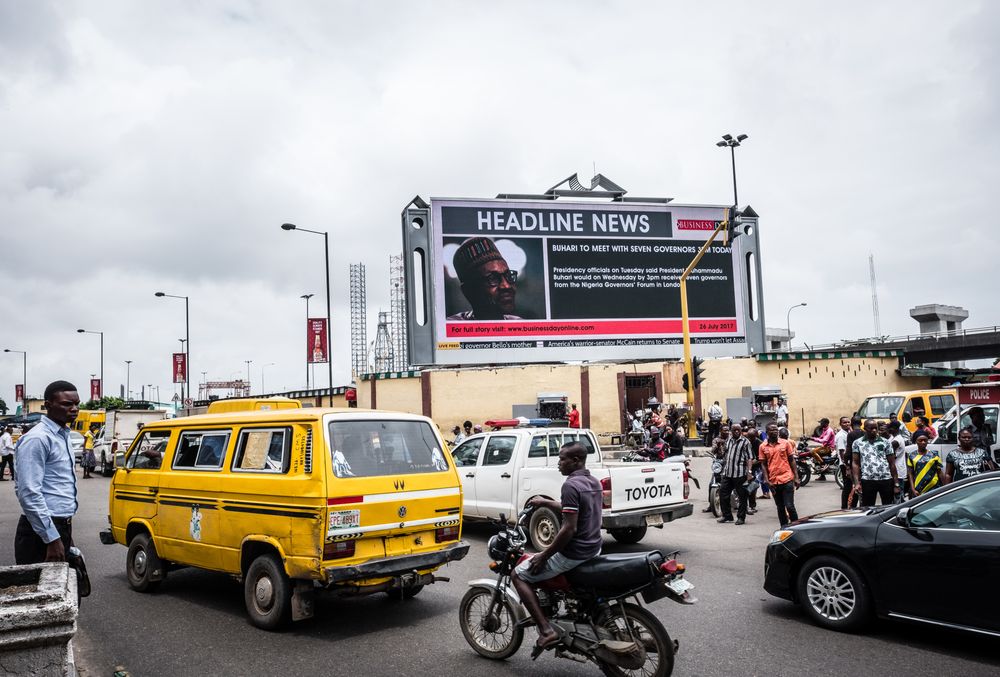In its latest World Economic Outlook (WEO), the IMF has trimmed its global forecast for 2022 to 3.6% y/y from 4.4% y/y. For 2023, the growth projection was revised downwards from 3.8% y/y to 3.6% y/y.
Since the last WEO released in January, risks to economic prospects have risen sharply and policy trade-offs have become more challenging largely because of the Russia-Ukraine crisis which has had visible trickledown effects. Furthermore, frequent, and wider-ranging lockdowns in China have slowed manufacturing activities and are creating additional supply-chain bottlenecks.
Both Russia and Ukraine are projected to experience GDP contractions of -8.5% y/y and – 35% y/y respectively in 2022. The severe downturn in Ukraine is a direct result of the invasion. In Russia, the sharp decline reflects the impact of the sanctions with a severing of trade ties and greatly impaired domestic financial intermediation.
The 2022 forecasts for two of the largest economies, US, and China were reduced. The US global growth was revised downwards from 4.0% y/y to 3.7% y/y in 2022, driven by assumptions such as faster withdrawal of monetary support than in the previous projection given expected policy tightening in an attempt to rein in inflation and the impact of trade disruptions due to the ongoing Russia-Ukraine crisis.
China’s global growth was revised downwards from 4.8% to 4.4% in 2022. The combination of more transmissible coronavirus variants and the strict zero-COVID strategy in China has led to repeated mobility restrictions and localized lockdowns (including in key manufacturing and trading hubs). In addition to slow recovery in employment, these are causing strain on private consumption.
Crude oil prices increased sinceAugust 2021, driven by a strong recovery in oil demand, and then followed by geopolitical tensions (Russia-Ukraine crisis). The oil supply gap was wide before the ongoing crisis, as OPEC+ continued to ease supply curbs at a measured pace.
Global demand for oil is projected to increase to 99.7 million barrels a day (mb/d) in 2022. Meanwhile, oil price assumptions based on the futures markets for the Fund’s basket of three crude blends (UK Brent, Dubai Fateh, and West Texas Intermediate crude oil), shows an increase of 54.7% this year to USD106.8/b and a decline of -13.3% in 2023 to USD92.6/b.
Prior to the Russia-Ukraine crisis, headline inflation had surged across economies due to pandemic-induced supply-demand imbalances. Elevated inflation will affect trade-offs central banks face between combating price pressures and safeguarding growth. Inflation is expected to remain elevated across economies, driven by the war-induced commodity price increases. For 2022, the IMF projects average inflation at 5.7% in advanced economies and
8.7% in emerging and developing economies.
Regarding monetary policy, prior to the ongoing Russia-Ukraine crisis some central banks were tilting towards monetary policy tightening. This contributed to increases in nominal interest rates across advanced economy sovereign borrowers.
The general expectation is that policy rates are set to rise further in coming months. Furthermore, balance sheets for select central banks are also expected to begin to unwind, especially in advanced economies. Although some central banks across emerging and developing economies have raised their policy rate, China seems to be an outlier. China’s headline inflation remains low and its central bank trimmed policy rates in January ‘22 to support economic recovery.
On a broader note, expectations of tighter policy and concerns around the residual effects from the Russia-Ukraine crisis have contributed to financial market volatility and risk repricing. Interestingly, the Fund revised its forecast for sub-Saharan Africa to 3.8% (from 3.7%) for 2022. Higher food prices would adversely affect consumer pockets. In our view, given that wheat is an essential ingredient in the production of bread, pastries, pasta, biscuits, noodles among others, reduced supplier access and higher prices will weigh heavy on wheat-based producers within the region.
For Nigeria, the IMF raised its GDP growth projection for 2022 from 2.7% y/y to 3.4% y/y. This was largely due to the increase in oil prices. Bonny Light has increased from USD80.1/b at the start of the year and has remained above USD100/b. We have a relatively cautious view. Indeed, higher oil prices bode well for Nigeria.
However, the presence of the fuel subsidy regime undermine expected benefits. Furthermore, production volumes have been relatively low. Based on the latest OPEC data, Nigeria’s production volume stood at 1.35mb/d compared to its OPEC approved quota of 1.74mb/d.
There are other downside risks to consider such as the trickledown effect from the Russia-Ukraine crisis which has an impact on supply-chain dynamics and by extension, affects inflation and consumption patterns. On a brighter note, we expect a small fiscal boost with increased capital expenditure which should support GDP growth. We currently see GDP growth for Nigeria at 2.8% y/y in 2022.

 Naira4 weeks ago
Naira4 weeks ago
 News4 weeks ago
News4 weeks ago
 Naira4 weeks ago
Naira4 weeks ago
 Travel3 weeks ago
Travel3 weeks ago
 Naira3 weeks ago
Naira3 weeks ago
 Jobs4 weeks ago
Jobs4 weeks ago
 Naira3 weeks ago
Naira3 weeks ago
 Investment4 weeks ago
Investment4 weeks ago






























